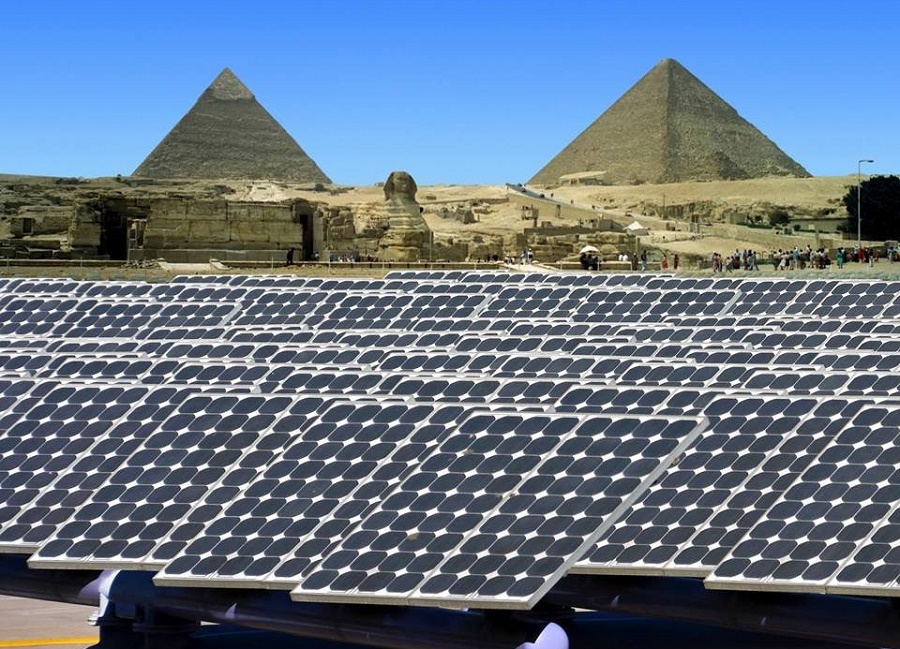Can cleantech be Egypt's greatest wealth generator?

The Egyptian cleantech ecosystem is a few years behind its cousin, pure tech, but the sector is beginning to show signs of consolidation.
There is a chance that if the threads outlined at the Rise Up Summit in Cairo this month pull together, cleantech could indeed be the huge wealth creator that both locals and foreigners expect it to become.
“Investors are looking at emerging markets as a growth engine for cleantech,” said Fred Walti, CEO of the Los Angeles Cleantech Incubator (LACI). “It will be the fastest growing sector for the remainder of our lifetime, it will be the greatest wealth creator in our lifetime. It’s definitely not for wimps.”
But canny entrepreneurs must know where the opportunities lie - you may be too late if you’re thinking of hitting the rooftop solar panel market now. Unsophisticated VCs also need to be educated on the trends worth backing and how to invest in them.
Future tech, future opportunities
Four areas hold potential right now, according to five cleantech experts: solar water pumps, low powered appliances, biomass, and the trend towards more decentralized power generation, both at small and utility scale.
Ahmad Gaber, chairman of Chemonics Egypt and a longtime expert in sustainability, said biomass was one area yet to be explored in Egypt and entrepreneurs should particularly be looking into anaerobic digestion. It’s a more complex and expensive system of generating energy from waste than aerobic digestion, but one that creates fertilizer as well as gas for either cooking or electricity.
Furthermore, in November the government agreed on a feed-in-tariff rate for electricity generated from recycling factories - so there is some political support for the process.

With emerging markets leading global growth in power use, M-Kopa Solar Tanzania managing director David Damberger said appliances using DC instead of AC power were the future, as off-grid solar was “pioneering” low-power devices. A television using AC power will use between 70-150 watts, while one using DC power will use less than 10.
“Why not instead of making more energy, you just [switch to appliances that] use less?” he said.
Ahmed Zahran, cofounder of Karmsolar, said the sector was moving to become more decentralised.
Future Pump founder Toby Hammond, from Kenya, and Sun City founder Ahmed Abbas were proponents of solar agricultural water pumps.
“There are half a billion people in the world who are deriving their primary income from growing vegetables,” Hammond said, creating a giant market for inexpensive water pumps.
Teaching old investors new tricks
The trick will be educating “unsophisticated investors” - the so-called smart money VCs of the pure tech world.
“A lot of investors are still fairly unsophisticated. They’re looking for the next Facebook,” said Switchmed project manager Daniel Hires. “They don’t understand that these companies have different financing needs.”
Not only do cleantech companies have much higher capital needs and a longer lead time - up to three years longer, according to LACI’s Walti - but the different cleantech markets can be difficult to understand.
For example, Karmsolar, inarguably Egypt’s most successful cleantech startup, has not taken any traditional venture capital investment. Even Flat6labs, one of the most prolific investors in the region via its accelerator program, only has two cleantech startups, Taggadod and Sunergy, amongst the 89 featured on its website.
Walti said the LACI companies sourced investment from family offices, impact funds and other non-traditional startup investors.
Getting the government on board
Cleantech, and particularly the energy sector, is one that does require some government assistance to create the right environment.
Solar, biomass and wind energy could likely not have flourished in Europe without subsidies, and in Egypt, it needs subsidies via a feed-in-tariff to compete with subsidised gas power generation.
Support for cleantech startups is coming from the country’s only approximation of a cleantech incubator, GESR, which also includes health and education in its mandate.

A government-supported pre-incubator and an incubator, both of which are for entrepreneurs working with industrial waste, will launch in January and February respectively.
The Ministry of Trade and Industry (MoTI) also intends to involve itself in the sector. Technical support officer Mohamed Elwazeer said 12 technology centers providing prototyping facilities and expert support were in the process of being set up, as part of a long-delayed entity to help entrepreneurs.
The Egyptian National Clean Production Center used the Rise Up Summit to advertise its services to entrepreneurs as a body that could both help smooth bureaucratic processes and introduce startups to large industrial clients.
Cleantech Arabia, which organised the cleantech track, is at the forefront of the movement providing a launchpad for Egyptian cleantech entrepreneurs and founder Ahmed Huzayyin sees cleantech as “a way of doing things, a design, it’s a moving target”.
“As entrepreneurs like to say, they’re changing the world, but what is more world changing than clean technology?” he asked.
Feature image via Africa Progress Panel.


